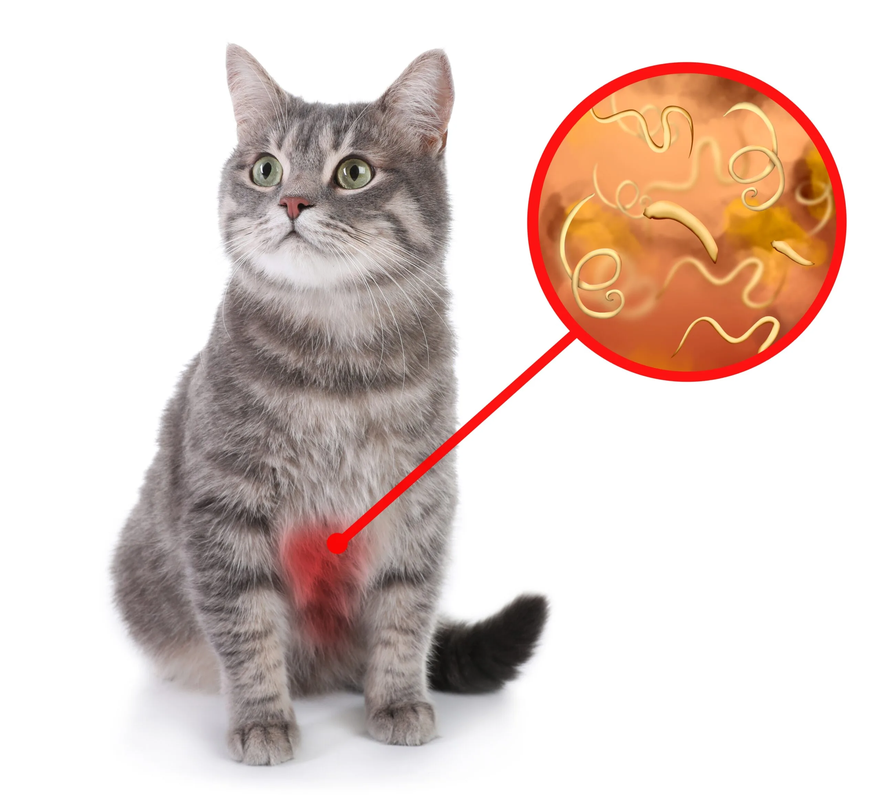Are you tired of walking into a room only to find a pile of, ahem, “uninvited guests” courtesy of your feline friend? You’re not alone! Cat diarrhea and vomiting are two of the most common and frustrating issues cat parents face. But before you reach for the disinfectant wipes (again), it’s essential to understand what’s behind this unwanted surprise.
A Guide to Understanding the Symptoms
As a responsible cat parent, you want to ensure your furry companion stays healthy and happy. And part of that is recognizing when something’s amiss. Cat diarrhea and vomiting can be caused by a range of factors, from dietary changes to underlying medical issues. The key is knowing what to look for and how to address it.
Let’s Start with the Basics: What Causes Cat Diarrhea and Vomiting?
When your cat starts showing signs of diarrhea or vomiting, it can be a stressful experience for both you and your pet. The first step in resolving this issue is understanding what might be causing it. Here are some common culprits:
- Eating something they shouldn’t (like that “tasty” plant or toxic substance)
- Food allergies or sensitivities
- Gastrointestinal issues, such as inflammatory bowel disease or irritable bowel syndrome-like conditions
- Infections, like giardiasis or cryptosporidiosis
- Medications or supplements that upset their stomach
- Underlying medical conditions, such as kidney disease or hyperthyroidism
This isn’t an exhaustive list, but it’s a good starting point for understanding the potential causes of cat diarrhea and vomiting. In our next section, we’ll delve deeper into some common signs and symptoms to look out for.

As we explored earlier, cat diarrhea and vomiting can be caused by a range of factors, from dietary changes to underlying medical issues. Now that you have a better understanding of the potential culprits behind these unpleasant symptoms, let’s dive deeper into some common signs and symptoms to look out for.
Symptoms to Watch Out For
When your cat starts exhibiting diarrhea or vomiting, it’s essential to observe their behavior and physical condition. Here are some key signs and symptoms to watch out for:
- Frequent or sudden onset of diarrhea or vomiting
- A change in appetite or water consumption
- Whitish or yellowish discharge around the anus or nose
- Poor coat condition, such as dullness or excessive shedding
- In some cases, lethargy, loss of interest in activities, or hiding behavior
It’s crucial to remember that each cat is unique, and what might be a normal symptom for one feline friend might not be for another. That said, if you notice any of these signs or symptoms, it’s always better to err on the side of caution and consult with your veterinarian.
The Role of Diet in Cat Diarrhea and Vomiting
As a cat parent, one of the most significant factors affecting your cat’s digestive health is their diet. A sudden change in food or an allergy to certain ingredients can trigger diarrhea or vomiting. If you’re considering making changes to your cat’s diet, it’s essential to do so gradually and under the guidance of your veterinarian.
Some common dietary triggers for cat diarrhea and vomiting include:
- New or novel protein sources
- Sudden changes in fat content or texture
- Allergies or sensitivities to certain ingredients, such as dairy or soy
By understanding the potential causes of cat diarrhea and vomiting, you can take proactive steps to prevent these issues from arising. In our next section, we’ll explore some effective ways to manage these symptoms and keep your feline friend happy and healthy.
Learn more about common digestive issues in catsRemember, every cat is unique, and what works for one might not work for another. If you’re concerned about your cat’s diarrhea or vomiting, it’s always best to consult with a veterinarian for personalized advice.
Get Expert Guidance on Cat Diarrhea Vomiting
Don’t let your cat’s symptoms go untreated. Consult with a medical expert to get personalized advice.
Get Expert AdviceIn our previous section, we explored the potential causes of cat diarrhea and vomiting. Now that you have a better understanding of what might be behind your cat’s less-than-favorable digestive habits, let’s summarize the key points covered so far:
- Cat diarrhea and vomiting can be caused by a range of factors, from dietary changes to underlying medical issues.
- Common culprits include eating something they shouldn’t, food allergies or sensitivities, gastrointestinal issues, infections, medications or supplements that upset their stomach, and underlying medical conditions.
As you navigate this challenging situation, remember that your cat is counting on you to help them feel better. By recognizing the signs and symptoms of diarrhea and vomiting, you can take steps towards resolving the issue and restoring your cat’s digestive health.
Final Insights: What to Do Next
If your cat is experiencing persistent or severe diarrhea and vomiting, it’s crucial to consult with a veterinarian. They will be able to conduct a physical examination, take a complete medical history, and run diagnostic tests to determine the underlying cause of the issue.
In the meantime, here are some general tips to help manage your cat’s symptoms:
- Keep an eye on their hydration levels and encourage them to drink plenty of water.
- Fed a bland diet for a short period to give their digestive system a break.
- Monitor their stool quality and watch for any signs of improvement or deterioration.
Remember, every cat is different, so it’s essential to tailor your approach to your individual pet’s needs. By working with your veterinarian and implementing these strategies, you can help your cat feel more comfortable and get back on the path to good health.
A Satisfying Conclusion: Taking Control of Your Cat’s Digestive Health
We hope this comprehensive guide has provided valuable insights into understanding cat diarrhea and vomiting. By recognizing the signs and symptoms, identifying potential causes, and taking steps towards resolution, you can take control of your cat’s digestive health and provide them with the comfort and care they deserve.
As a responsible cat parent, you want to ensure your furry companion stays healthy, happy, and comfortable. By working together with your veterinarian and implementing these strategies, you can help your cat thrive and enjoy many more years of love, laughter, and snuggles.
Frequent Urination: A Warning Sign of High Blood Sugar?: Are you experiencing frequent trips to the bathroom? It could be a sign that your blood sugar levels are higher than you think. Learn what’s behind this symptom and how it can impact your health. Don’t let undiagnosed high blood sugar catch you off guard!
Red Bumps on the Head of Your Penis: What’s Going On?: Got a mysterious rash on your manhood? Don’t panic! Learn what could be causing those pesky red bumps and how to treat them. Get the facts you need to take control of your health.




